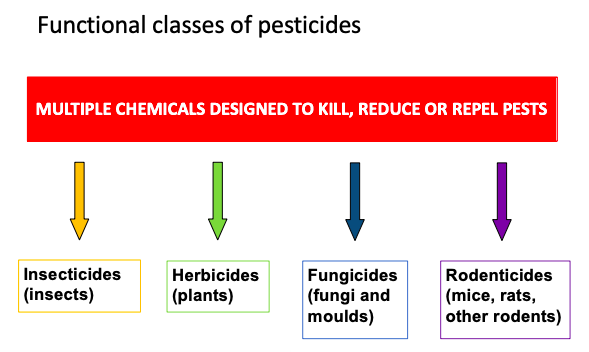Pesticides | Training for health care providers | WHO: Pesticides are chemical substances formulated to eliminate unwanted pests like molds, plants, insects, and rodents. They find application in safeguarding people, crops, land, trees, and property across various settings such as agriculture, homes, gardens, and community areas. However, despite their utility, pesticides pose potential toxic effects deliberately applied to areas where children frequent, such as homes and schools. Consequently, they pervade our environment, infiltrating the air, soil, food, and water. Since the latter half of the twentieth century, the production of synthetic organic chemicals, including pesticides, has seen a significant uptick. Despite their widespread use, the adverse health effects of synthetic pesticides on children and the environment were long overlooked. However, scientific research has now shed light on the myriad of health issues in children associated with pesticide exposure. Moreover, many chemicals found in pesticide products target similar biological systems in pests and humans, raising concerns. Additionally, there exists a notable gap in health care provider training concerning the prevention, diagnosis, and management of acute and chronic pesticide exposures. This module aims to bridge this gap by advocating for global efforts to minimize pesticide exposure and safeguard children’s health and future

Healthcare providers should possess knowledge about the primary chemical classes of insecticides, which are substances designed to target insects like mosquitoes and locusts. Insecticides typically affect four major nerve targets, which are also present in children. For instance, certain insecticides work by inhibiting acetylcholinesterase, an enzyme crucial for normal nervous system function at nerve cell junctions in both the central and peripheral nervous systems.

Hey ! I am Nepal Health Magazine Bot , yet powerful enough to approve, disapprove , delete, ban anything and anyone.



